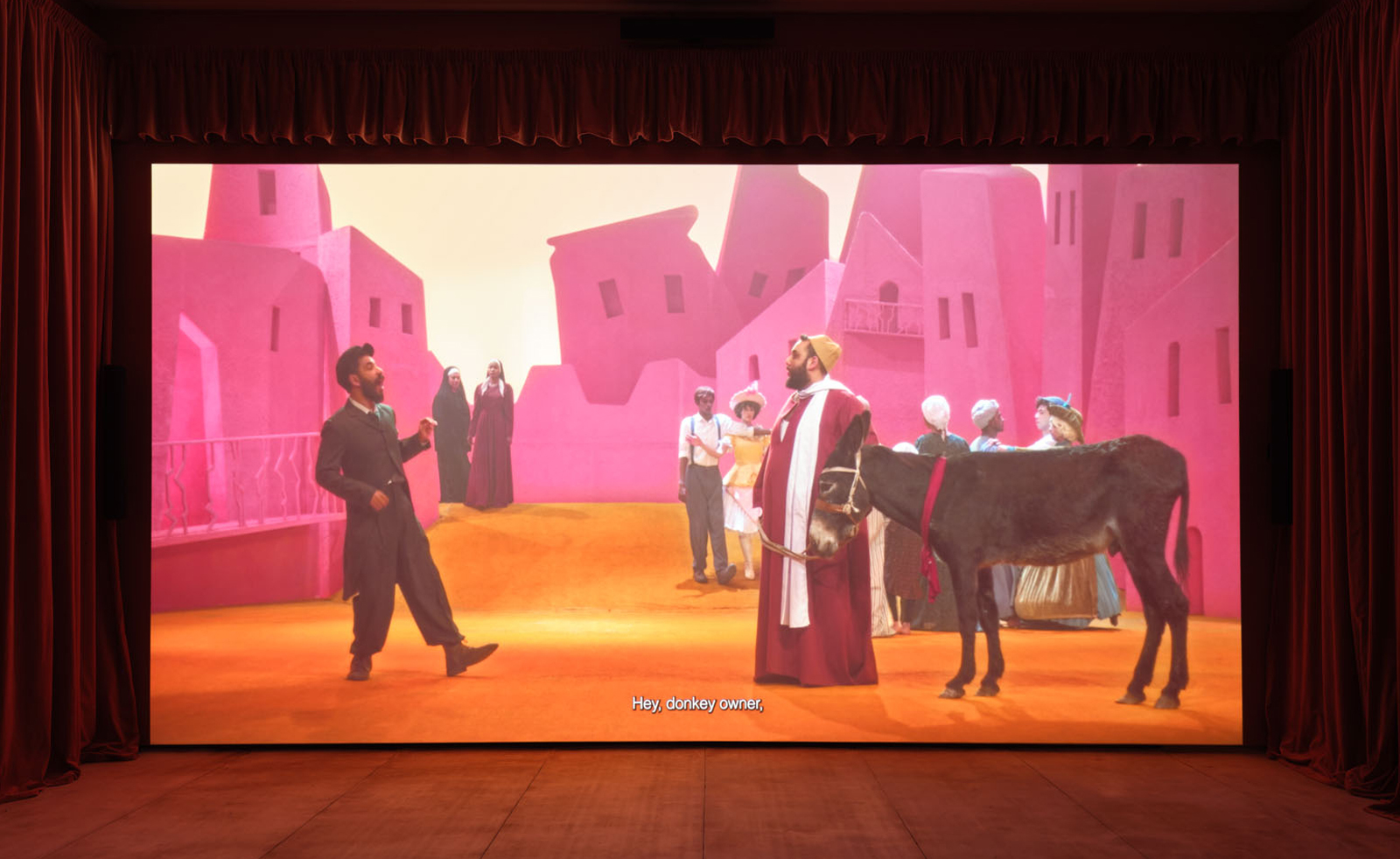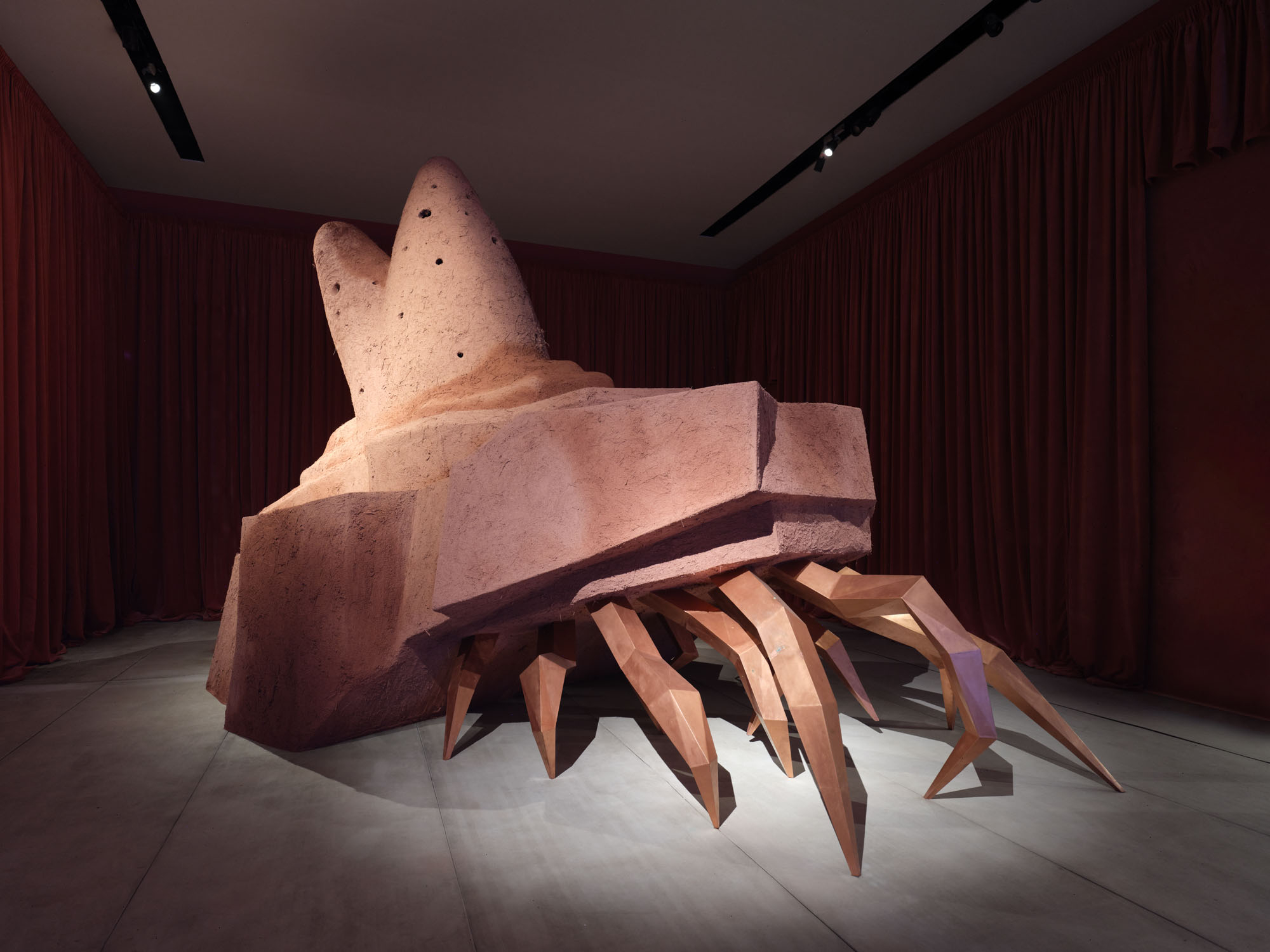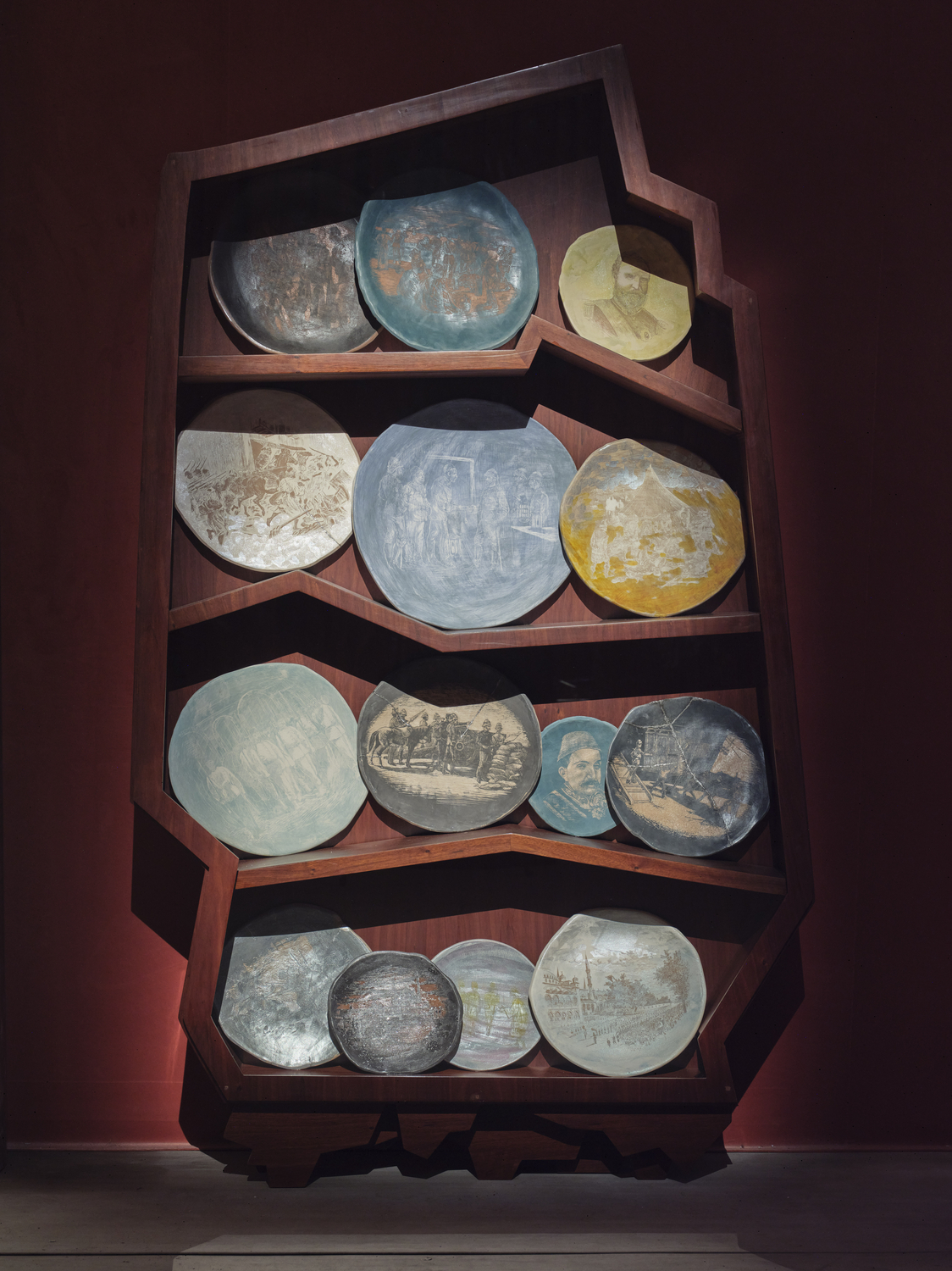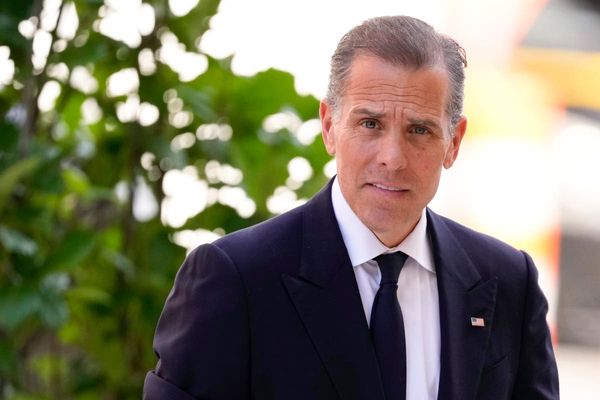
At the Venice Biennale 2024, where decolonisation is at the forefront of the conversation, the Egyptian Pavilion’s Drama 1882 was one of the most popular presentations during the event’s preview week. Renowned artist Wael Shawky’s feature-length opera, staged and filmed in Alexandria, drew the longest queues in the Giardini and was many people’s ‘must-see’ recommendation.
In this film, Shawky, who looks at pivotal moments in history with a focus on Egypt and the Middle East, considers the Urabi revolution against British imperial rule. It follows Colonel Ahmed Urabi, who founded the Egyptian Nationalist Party with the goal of achieving independence. Events build up into a full-scale British attack on Alexandria, and Urabi’s subsequent exile. Drama 1882 explores the chain of events that led up to this inflection point in a way that sheds light on both history and the world today. A huge production in scale and scope, it is an awe-inspiring work.
‘Drama 1882’, Wael Shawky's opera for the Egyptian Pavilion in Venice

'We started this whole idea about this exhibition, before the fall and what is happening today in Gaza, but now of course it's linked and it's making sense,' Shawky says to Wallpaper*, speaking outside the exhibition. 'Normally, I don’t like to work in a reactionary way as an artist, when there is a big event like this happening. I always like to go back – I go back to 200 years ago – and try to analyse history, to see how it relates to the present.'
The film, written and directed by the artist, marks a development in his practice. Having worked with marionettes and child actors in the past, this is his first production with a full cast. Deliberately staged as a traditional opera on a theatrical stage, it sees characters act out events leading up to 1882.
'The most important thing about this film is that I produced it in Alexandria, my city, with an amazing cast of young performers, dancers, singers and students,' Shawky adds.

'A big part of this is that I feel I need to make a shift in my work… I always wanted to erase drama from my work by having marionettes or kids, or masks. This time, I said, OK, let's call it a drama! Because drama can refer to many things and can refer to catastrophe, it can refer to theatre, or a show – something staged. It can also refer to something fake.'
As the story unfolds, this double meaning, a stage for something staged, reveals itself, pointing to both historical events and today, addressing performative politics and the ripple of events through time. Muted rich tones are complemented by an immaculately staged performance with sumptuous vocals. Written after extensive research, the libretto is an education in itself.
'I tried to create the pavilion in a way so it's like monography, so you enter the environment of the whole thing,' the artist explains. 'So you feel that it's part of one moving painting with the scenes in the film. What you see toward the curtains is more about the delicate craft that belongs more to the ruling family, the Ottoman Empire and the British colony.'
Curated by Massimo Osanna, Andrea Viliani and Gabriel Zuchtriegel, the pavilion is installed with vitrines that nod to themes from the film, silver-plated sugar cane gleaming and backlit, coins, vessels and sculptures including a large-scale hermit crab carrying a city on its back, referencing Egypt itself.
'I am always fascinated by societies in transition and by the idea of systems, that societies have the dream to develop, or to change or to transform from one system to another. I love this idea of the society that has the dream of development, even if it's completely wrong; there is something about this type of change, the mass of change in humanity, that I really love to capture somehow.'
The 60th Venice Biennale runs throughout the city until November 2024







